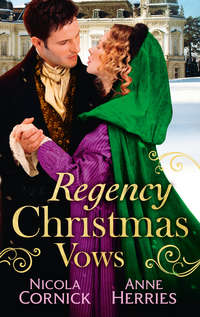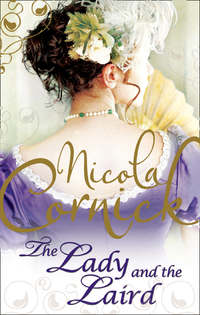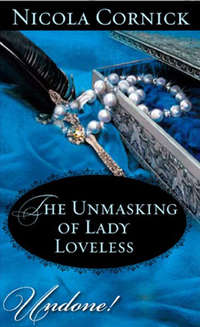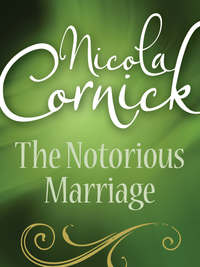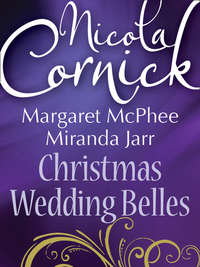
Полная версия
Christmas Wedding Belles: The Pirate's Kiss / A Smuggler's Tale / The Sailor's Bride

CHRISTMASWedding Belles
NICOLA CORNICK
MARGARET MCPHEE
MIRANDA JARRETT

CONTENTS
THE PIRATE’S KISS
Nicola Cornick
Author Note
Chapter 1
Chapter 2
Chapter 3
Chapter 4
Chapter 5
Chapter 6
Chapter 7
Chapter 8
A SMUGGLER’S TALE
Margaret McPhee
Author Note
Chapter 1
Chapter 2
Chapter 3
Chapter 4
Chapter 5
Chapter 6
THE SAILOR’S BRIDE
Miranda Jarrett
Author Note
Chapter 1
Chapter 2
Chapter 3
Chapter 4
Chapter 5
Chapter 6
Chapter 7
Chapter 8
THE PIRATE’S KISS
Nicola Cornick
Author Note
From the time that I first started reading—and loving—romance novels, books with pirate heroes have been amongst my very favorites. Georgette Heyer’s Beauvallet possessed all the heroic qualities I most admire—courage, daring, integrity and honor. The mysterious Frenchman in Daphne du Maurier’s Frenchman’s Creek and the dashing Rory Frost in M. M. Kaye’s Trade Wind ran off with my heart. I owe all of those writers a huge debt for the inspiration and enjoyment that they have given me over the years.
A couple of years ago, when I was researching my family tree, I discovered that two of my husband’s ancestors had been smugglers and pirates in Dorset at the end of the eighteenth century. Escaping from the authorities, they were last heard of in the Bahamas!
The lure of the pirate hero is a difficult one to resist—what could be more appealing than a man who lives outside the law and yet has his own code of honor and courage? In The Pirate’s Kiss* Daniel had loved and lost Lucy years before. Now they meet again and find that the attraction between them has never died. But can they find love again, or is it too late?
This story is dedicated to all the readers who wrote to me after they had read The Rake’s Mistress, asking for Daniel de Lancey to have a story of his own. Here it is—just for you.
Nicola
Chapter 1
Suffolk, England, November 1808
NOTHINGever happens here…
Lucinda Melville sighed and put down her pen. The casement window of her bedroom was open, allowing crisp winter air to flood in. It brought with it the scent of cold sea mixed with the fragrance of pine, and carried the distant sound of breakers on the shore and the hoot of owls down in the forest. A full moon shone bright in the black sky. It was a night made for romance, but Mrs Melville had no time for that sort of thing.
She picked up her pen again.
Nothing ever happens here…But pray do not think that I am complaining, dear Rebecca. I am more than grateful to you for finding me this position with Mrs Saltire. Indeed, I think that when Eustacia marries, as she is set to do in the New Year (to the dull but worthy Mr Leytonstone, just as I predicted), I will seek another governess’s post in this locality. Woodbridge is a charming town. We take tea at the assembly rooms and visit the theatre, provided that the entertainment is not too racy, of course. It is all entirely delightful, and very proper for a governess companion.
Lucinda paused again, thinking. There had been a time in her life when matters had not been so staid and unadventurous, but that had been a very long time ago and was soon dismissed again.
She dusted the letter down and closed the writing box. As nothing else had happened she had no more to tell her childhood friend, Rebecca Kestrel. Besides, Rebecca and her husband, Lucas, were to join their party in a couple of months’ time, for Christmas at Kestrel Court, so she would save the rest of her news, such as it was, until then.
Lucinda went across to the window and leaned her arms on the sill, resting her chin on her hand as she stared out into the dark. When she had first heard from Mrs Saltire that they were to spend autumn in the Midwinter villages she had been quite concerned, for everyone knew that there had been the most scandalously diverting occurrences at Midwinter a mere five years before, when the members of a dangerous spy ring had been captured. It was not at all the type of environment that Lucinda thought appropriate for her young charge. Miss Eustacia Saltire was a sweet girl, but she was deplorably romantic in her inclinations, and Lucinda was very concerned that Stacey would become quite over-excited by her proximity to people who had actually been involved in the shocking events of those times.
Balanced against the danger of encouraging Stacey’s wayward imagination, however, had been the possibilities provided by a family connection to the Duke of Kestrel. Mrs Saltire had the good fortune to be distantly related to the Duchess of Kestrel, and it had been the Duchess who had suggested that Mrs Saltire might like to bring Stacey to Midwinter for a few months. Mindful of the fact that the Duke still had several eligible relatives unmarried, and also that Stacey simply had not taken during her first season in London, Mrs Saltire had eagerly agreed. The journey had been accomplished, made all the smoother by the attentiveness of the ducal servants, and they had now been situated at Kestrel Court for eight weeks.
Lucinda sighed again. It would soon be time for her to start applying for a new post, for Stacey was now betrothed to the worthy but dull Samuel Leytonstone, who had a solid fortune and a manner to match. Secretly Lucinda thought that Stacey could aim higher than a young man who behaved as though he were already in flannel vests, but she kept the unworthy thought to herself. Mr Leytonstone was steady and rich and reliable, and one had to count such matters above trifling things such as passion and gallantry. Lucinda knew all about the dangers of rash youthful passion, and if a tiny part of her still craved excitement she usually managed to ignore it.
Lucinda knew all about Making Do too. In her youth her looks had been no more than tolerable—dark blonde hair and cool blue eyes had been unfashionable at the time—and her parents, an indigent vicar and his social climbing wife, had been delighted when she had become engaged straight from the schoolroom. But then the plan had gone awry.
She had been betrothed for four years to her childhood sweetheart—a man who, humiliatingly, appeared to have forgotten her existence as soon as she was out of his sight, a man with dash and brilliance and the prospect of a glittering naval career. Eventually the most appalling of news had filtered its way back to her, conveyed by the gossips and scandalmongers who made it their business to upset as many people as possible. Her betrothed was a criminal. He had abandoned his promising naval career and had taken up instead as—whisper it—a pirate.
That was the moment Lucinda’s heart had broken. So she had married the first man who asked, had been widowed two years later, and now here she was, at nine and twenty, earning her own living and putting youthful folly firmly where it belonged—in the past.
Lucinda spotted a moth that was coming dangerously close to the candle flame. She trapped it gently in her cupped palms and released it out of the window, worrying as soon as it was gone that the night would be too cold for it and it would perish.
As she turned to close the casement a flicker of movement caught her eye, away on the edge of the woods that bordered the garden at Kestrel Court. She stopped, staring into the shadows. The leaves rustled in the slight breeze and the scent of pine mingled with the fresher, salty smell of the sea and the crispness of the frosty night. Lucinda paused, her hand on the window latch. There was no one there. The skipping shadows and her imagination were playing tricks.
At least she hoped so.
But a nasty suspicion had lodged in her mind and would not be shifted. What if it was Stacey, making an assignation with a young man? What if—perish the thought—Stacey was planning an elopement?
Before the dull but rich Mr Leytonstone had proposed, a certain Mr Owen Chance, the Riding Officer stationed in Woodbridge to catch smugglers, had asked Mrs Saltire’s permission to pay his addresses to Stacey. Mrs Saltire had refused graciously, politely, but very finally. She had pointed out elegantly that Mr Chance had good birth but no money, and precious little prospect of making any in a backwater like Midwinter. But Owen Chance was a good-looking man, with a charm to match, and, being fair, Lucinda could see that he quite eclipsed poor Mr Leytonstone. One could not imagine Mr Chance in a flannel vest. In fact Lucinda could tell that Stacey had imagined Mr Chance more as a knight on a white charger, and her mother’s refusal to countenance his suit made him all the more attractive.
There had been tears when Mrs Saltire had pointed out the financial realities of their situation to her daughter, and then Mr Leytonstone had proposed and been accepted. Stacey had gone very quiet and suspiciously biddable, but Lucinda was not convinced…
If Stacey was regretting her betrothal and making midnight assignations with the dashing Mr Chance…Well…Lucinda shook her head. It would be very foolish because, apart from any issues of propriety, she would catch her death of cold out on a night like this.
It was past twelve and time for bed. Lucinda heard the clock at the bottom of the stairs chime the quarter-hour. Mrs Saltire would be asleep by now, tucked up with her laudanum, and Stacey, whom Lucinda had caught reading Ivanhoe earlier in the day, was probably dreaming of romantic heroes, not creeping out into the grounds of Kestrel Court to meet one.
Nothing ever happens here…
Lucinda put up a hand to pull the curtains shut, then paused as the flicker of movement caught her eye again. A man on horseback was riding very slowly down the track that bordered the gardens of Kestrel Court. Lucinda could see his outline in the moonlight. It looked disturbingly like Mr Chance, on the raking bay mare upon which he had caught Stacey’s eye in the first place.
A floorboard creaked on the landing, and then there was the sound of a step on the stair. With a sharp sigh Lucinda snatched her cloak from the chairback where she had left it earlier, and flung it about her shoulders. She grabbed the candle from beside her bed, and hurried out into the corridor. It was not the first time that her role as governess had involved her in counselling against an improvident love affair. She did not want Stacey to ruin herself in a foolish elopement and then rue it for the rest of her days when the love was gone and there was no money on which to live.
The house was silent. A lamp burned in the porch, but the night porter was not at his post, though the front door was unlocked. Deploring such laxity on the part of the servants, Lucinda turned the handle and went outside, down the steps and onto the gravel sweep. Her candle flickered and went out, doused by the sharp sea breeze. For a moment she blinked in the sudden darkness, but then her eyes adjusted to the moonlight and she could see a figure slipping between the trees in the lee of the park wall. At the same time she heard the sound of hooves on the frosty ground. Could that be Mr Chance, coming to carry off his bride? Lucinda screwed up her face as she imagined Mrs Saltire’s hysterics when she discovered that her little ewe lamb had thrown herself away on a pauper.
She hastened after the fleeing figure, but Stacey—if it were she—had already lost herself amongst the trees that bordered the park. The night was quiet now. Suspiciously so. Lucinda held her breath, straining to hear any sound that might give her quarry away, but there was nothing except the wind in the top of the pines and the distant beat of the waves on the shore.
Perhaps she had been mistaken. Perhaps Stacey really was tucked up in bed. It was a servant she had heard on the stair and she was out here chasing shadows. The cold was eating deep into her bones now. It was no night for an elopement. Feeling foolish, Lucinda turned to go back to the house.
The moon went behind a cloud, but in the moment before it disappeared Lucinda clearly saw a man crouching in the lee of the park gates—and in the same instant she saw what he could not: the menacing shadow of the Riding Officer moving silently along the wall, coming closer all the time. She caught her breath on a gasp, and the hidden man turned his head at the sound. With a shock of recognition Lucinda knew him.
Terror and amazement jolted through her. Past and present collided violently. Lucinda started to tremble. She could see that the man had spotted her and was about to speak; she saw too that Owen Chance was urging his horse forward silently, every sense alert for the slightest sound.
Lucinda acted on instinct. She raised a finger to her lips in a beseeching gesture and saw the fugitive pause, and then she was beside him in one silent move, clapping her hand over his mouth. She pulled him deeper into the shadow of the gate and leaned forward to whisper in his ear.
‘Be silent! There is an excise man on the other side of the wall.’
Touching him as she was, she could feel the tension that ripped through his body at her words. Every muscle he possessed was taut and ready for flight—or fight. He moved slightly, silently, to grasp the pistol in his belt.
Lucinda eased her hand from his mouth and rested it warningly on his shoulder. They were both utterly still. She could not even hear his breathing. But she was more aware of him than she had ever been of any other person in her life. She was pressed against the unyielding lines of his back. She could feel the warmth of his skin and she could smell him, a scent of fresh air and salt and leather that went straight to her head and made her senses spin, and also made her wonder, quite outrageously, if he tasted of the sea as well.
The tension spun tight as a web and seemed to last for ever, and then there was a chink of harness. She heard Owen Chance swear softly, and the horse snorted as he pulled on the rein. The shadows shifted and the horse and rider turned towards the Woodbridge road to be were swallowed up in the darkness. The frost glittered on the road behind them. Lucinda released the man and stood up slowly, every muscle in her body protesting at being clenched so tight.
The man got to his feet and they stood looking at each other in the moonlight. Lucinda felt breathless—a natural enough condition, she assured herself, since she had forgotten to breathe during the entire encounter. Twelve long years slipped away as though they had never been, and she was a young girl again, fathoms deep in her first love. She had thought never to see this man again…
‘So…’ he said. His voice was smooth. ‘I must thank you for saving my skin. I had no notion that he was there.’ He shook his head ruefully. ‘Muffling the horse’s hooves is an old trick. I cannot believe it almost caught me.’
‘You should be more careful,’ Lucinda said. She was glad that her voice sounded so calm when inside she was trembling. Did he not recognise her? Had she changed so much? It seemed impossible that he would not know her when she had known him instantly. A spasm of bitterness twisted within her. Perhaps it was not so surprising. He had, after all, forgotten her as soon as he had walked out of her life. Why would he remember her now?
She saw his teeth flash white as he smiled. ‘I will take your advice in future. But you, mistress…What made you decide to help me when ninety-nine of one hundred females would have screamed loud enough to bring every last Riding Officer in the vicinity down on me?’
Lucinda regarded him steadily. She was not entirely sure why she had helped him when she had reason enough to wish him dead. But instinct, as old and deep as time, had made her save him rather than condemn him, and she did not want to question why.
‘I did it for the sake of your sister, Daniel de Lancey,’ she said, reaching for an acceptable half-truth. ‘Rebecca would not wish me to condemn you to hang if I could save your neck.’
He went very still. ‘Do I know you?’
‘You did once,’ Lucinda said.
He took her chin in his hand and turned her face up to the moonlight, and Lucinda took the opportunity to study him as candidly as he was scrutinising her. He had not changed so much from the young man she had last seen twelve years before. He still had intensely dark hair, untouched with grey, and dark eyes that had once bewitched every young lady in the county—eyes so black she had once imagined fancifully that they were darker than midnight. Differences were there, though. His face was leaner than she remembered, hardened, perhaps, by experience and adversity—the line of the jaw harsh, the mouth firm. And he was no longer the lanky youth he had once been, but had filled out with hard muscle beneath his coat, so that his shoulders were broad and he seemed taller, tougher, altogether more dangerous.
Her skin prickled with awareness beneath his fingers. Emotions stirred. Old memories…She had been so young, only seventeen, but there had been nothing childish about her feelings for Daniel de Lancey. He had been her first love—her only love, if she were honest. And she had never forgotten him, not even when humiliation and pride had flayed her alive, and common sense and practicality and every sound, rational reason she could ever come up with had prompted her to let his memory go.
He pursed his lips into a soundless whistle.
‘Lucy Spring…By all that’s miraculous…’ There was something in his eyes, something of nostalgia laced with a wickedness that made her heart turn over. But she was a sensible widow now, not a lovestruck young girl who would fall for his shallow charm a second time.
‘Lucinda Melville,’ she corrected primly.
His hand fell. ‘Of course. I heard that you had wed. You did not wait for me as you promised.’
Emotion raked Lucinda suddenly, as raw and painful now as it had been eight years before, when she had heard of his betrayal. ‘You did not come back for me as you promised.’ The hot words tumbled from her lips before she could help herself. ‘How dare you reproach me? You left me without a word. I waited four years, Daniel! And then I heard that you had abandoned me—abandoned everything you had previously held dear!’ There was a wealth of bitterness and humiliation in her voice. ‘Did you expect me to wait for ever?’
It seemed a long time before he replied. His face was in shadow and she could not read his tone. ‘Yes,’ he said, at last. He shifted a little. ‘Yes, I suppose that I did.’
‘I never received anything from you,’ Lucinda said. ‘No word, no letters…Did you write to me at all? Did you even think of me?’
There was a silence. She could still remember the stifling conventionality of the vicarage drawing room where, over tea each and every day, her mother’s visitors would press her gently on whether she had heard from her fiancé yet and commiserate maliciously with her when she was forced to admit she had not.
‘It was a long time ago,’ Daniel said, and Lucinda’s heart wrenched to have her suspicions confirmed. He had not written. He had not cared.
‘So it was,’ she said. ‘And now I am a widow and you are a pirate, so I hear.’
She saw him grin. ‘You heard correctly.’
She looked at him. In boots and a tattered old frieze coat he looked more like a yeoman farmer—except for the pistol and sword at his belt.
‘You do not look much like a pirate,’ she said. ‘How disappointing.’
Daniel tilted his head on one side. ‘How do you know what a pirate looks like? Have you met any others to compare me with?’
‘No,’ Lucinda conceded. ‘I was basing my judgement on literature only.’
‘Ah. Blackbeard?’
‘And Calico Jack.’
‘Neither had any style, so I hear.’
‘They are both dead,’ Lucinda said repressively. ‘It is not a career with good prospects.’
Daniel laughed. ‘You always were the practical one.’
‘And you were reckless and dangerous,’ Lucinda said.
‘So, no change there. Which is why I am a pirate. We both made our choices, did we not, Lucy? Mine to be wild and irresponsible and yours to marry for money.’
‘I am a governess,’ Lucinda snapped, ‘not a rich widow.’
‘I heard,’ Daniel said. ‘Fine justice that you threw me over for Leopold Melville and then he turned out to be penniless.’
The anger and hurt that Lucinda had spent years repressing jetted up. ‘By what right do you say that, Daniel de Lancey? I waited and waited for you, but you never came, did not even send word!’ Her voice rose. ‘Do you think it was right that I should be obliged to wait on the whim of a man who did not care enough to send just one letter?’ She glared at him. ‘You were an arrogant, selfish, heartless boy, and you are no better now as a man! I wish I had not saved your skin just now.’
Daniel had listened to her outburst without a word, but now he took a step towards her. He put his hand on her wrist. Neither of them was wearing gloves. His touch scalded her.
‘Will you give me away, then?’ he demanded. ‘Run back to the house and raise the alarm?’
‘Of course not,’ Lucinda said contemptuously. ‘What good would that do? You would be long gone before the militia were out.’
His fingers tightened. ‘But you would like me to be caught?’
Lucinda shrugged angrily. ‘You deserve no sympathy from me.’
‘Perhaps not. But you helped me, all the same. Why was that, Lucy? If you bear such a grudge against me?’
Lucinda shivered a little, for beneath the anger that smouldered in both of them she sensed something else, something much more perilous. Old passion as hot and brittle as burning sticks.
Daniel was rubbing his fingers over the tender skin on the underside of her wrist, sending ripples of sensation cascading along her nerves. ‘Why?’ he asked again, softly this time.
Lucinda tried to snatch her hand away but he held on to her. ‘And what,’ he continued, ‘were you doing out here in the dark? Meeting a lover?’
‘Mind your own business,’ Lucinda snapped, seizing on his second question so she did not have to answer the first, more difficult one. ‘If you must know, I was out here looking for Miss Saltire. She has a tendre for Mr Chance, the Riding Officer, and I was afraid that she had made a foolish decision to elope.’
Daniel smiled a little. ‘You would not approve of that, of course.’
‘No, indeed. I know how misleading youthful passions can be.’
‘But instead of Miss Saltire it is her governess who is out meeting a gentleman in the moonlight.’
‘You are no gentleman.’
‘That’s true. Which probably makes me even more dangerous to tryst with.’
‘Then I shall leave.’
‘Very wise,’ Daniel said. His tone became contemplative. ‘Last time we parted you kissed me goodbye.’
There was a short, sharp silence. ‘I remember,’ Lucinda said, adding crushingly, ‘It was not a very good kiss, was it?’
She remembered that it had been sweet, though, despite their lack of experience. And, truth to tell, she had little more knowledge of kissing now than she had had then. One could not count Leopold’s fumbling attentions as adding to her experience. It had been endurance rather than passion that had been her companion in the marriage bed. Leopold had accused her of coldness and had turned from her in fury.
She suspected that Daniel’s experience with the opposite sex, in contrast to her own, had increased in leaps and bounds—a suspicion confirmed when he said, ‘No doubt we could do better now.’
Lucinda’s stomach muscles clenched with a mixture of nervousness and longing. She tried hard to ignore it.


